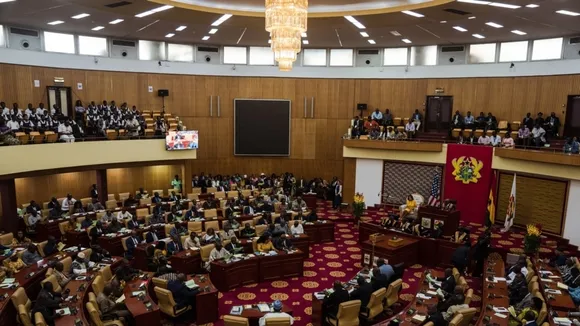
Imagine living in a world where your existence is deemed illegal, where the essence of who you love could potentially land you behind bars. This isn’t a dystopian narrative but a stark reality for many within the LGBT community in Ghana. In a recent parliamentary session that has drawn international attention, Ghana’s lawmakers have made a decisive move that could redefine the lives of many of its citizens. The proposed legislation, aimed at intensifying restrictions on LGBT individuals, marks a significant moment in the nation’s legal and cultural landscape.
The Legislative Process: A Step Backwards?
At the heart of this legislative endeavor is the Promotion of Proper Human Sexual Rights and Ghanaian Family Values Bill, a title that masquerades its intent with a veneer of cultural preservation. The bill proposes to extend the punishment for homosexual acts from up to three years to an unprecedented five years in prison. In a surprising turn of events, a suggestion by lawmaker Alexander Afenyo-Markin to replace jail terms with non-custodial penalties, such as counselling, was overwhelmingly rejected. This decision underscores a commitment to punitive measures against the LGBT community, a stance that has garnered broad support among Ghana’s legislators.
Voices from Within: The Community’s Reaction
The bill’s progression has ignited a firestorm of reactions, both locally and globally. Critics argue that it represents a draconian step backwards for human rights in Ghana, potentially setting a dangerous precedent for human rights abuses against vulnerable communities. Activists within the country, many of whom are forced to operate under the radar, have expressed profound concern over the escalation of hostility and violence that the bill’s passage could incite. They warn of a future where the mere act of advocating for LGBT rights could land one in prison for up to a decade, as outlined by the bill’s harsh provisions.
A Divided Nation: The Path Forward
The legislation enjoys widespread support among Ghana’s religious and traditional leaders, reflecting a societal stance that views homosexuality as antithetical to Ghanaian values. However, this perspective is not without its detractors. A vocal minority, comprising human rights organizations, activists, and a segment of the population, continues to push back against the bill, advocating for tolerance, inclusivity, and the protection of minority rights. The fate of the bill, and by extension the future of LGBT rights in Ghana, now rests in the hands of President Nana Akufo-Addo, whose position on the matter remains uncertain.
As Ghana stands at this crossroads, the international community watches closely, with many urging a reconsideration of the bill. The struggle for LGBT rights in Ghana is emblematic of a larger global battle for equality and acceptance, challenging us to reflect on the kind of world we wish to create. A world defined by compassion and understanding, or one marred by division and discrimination.



